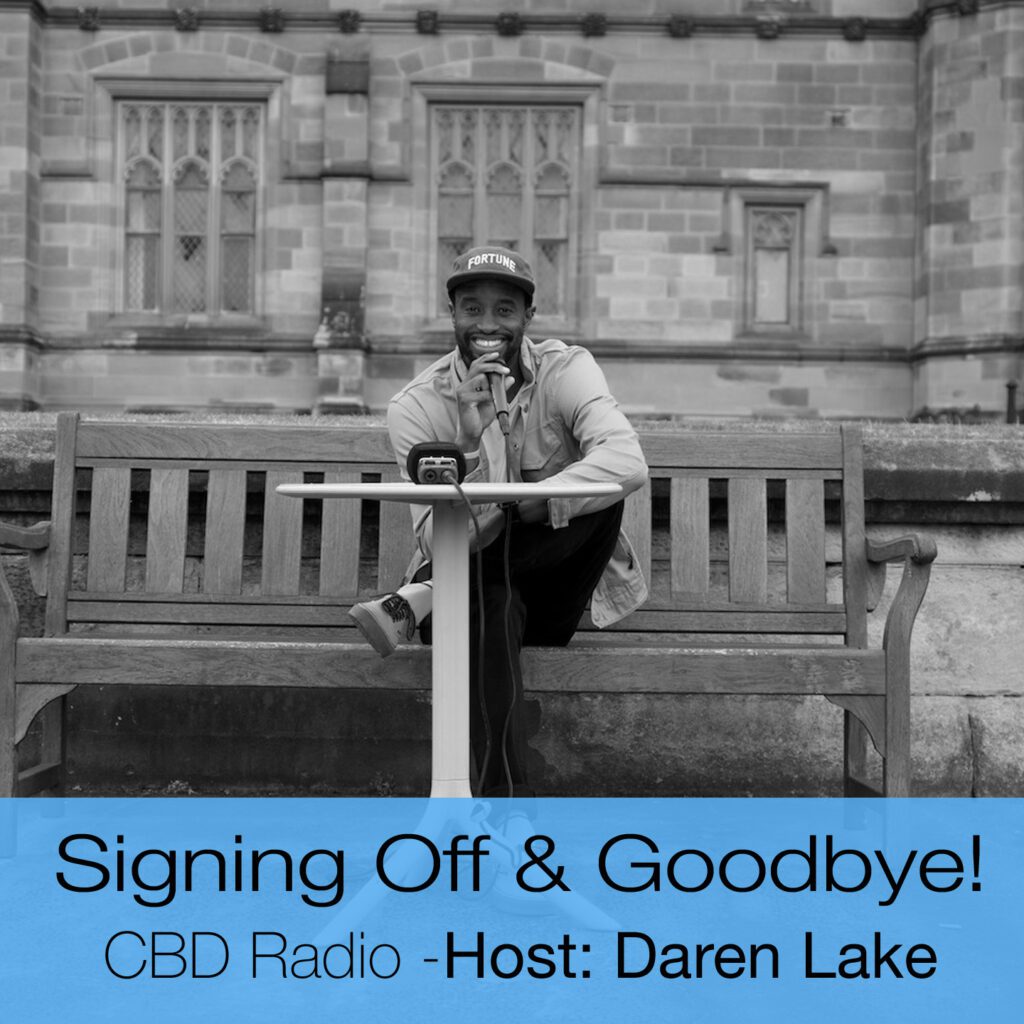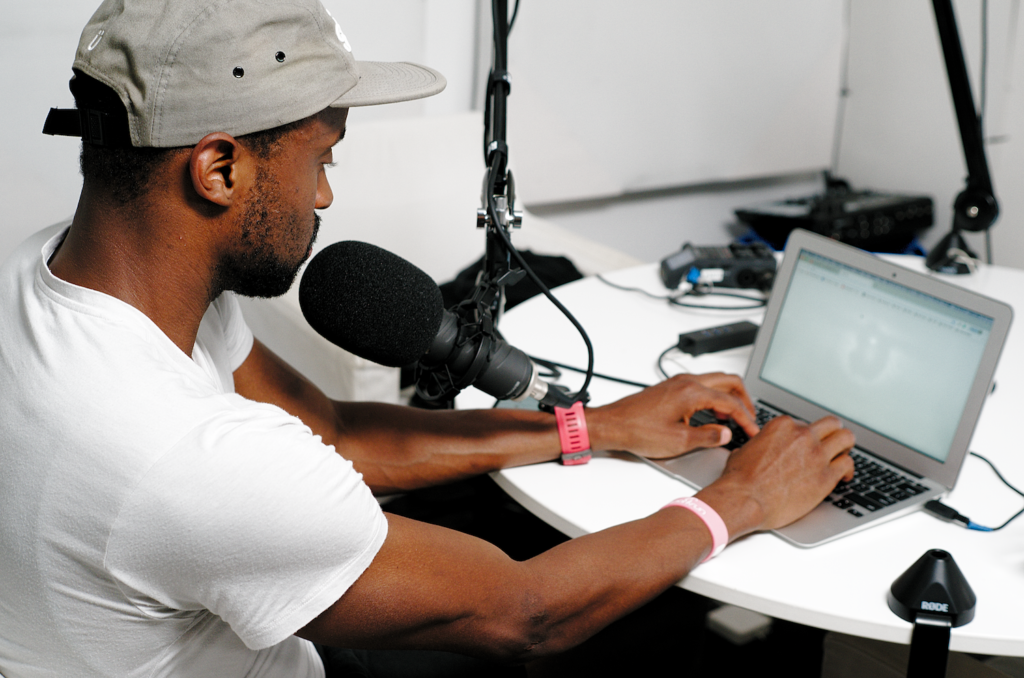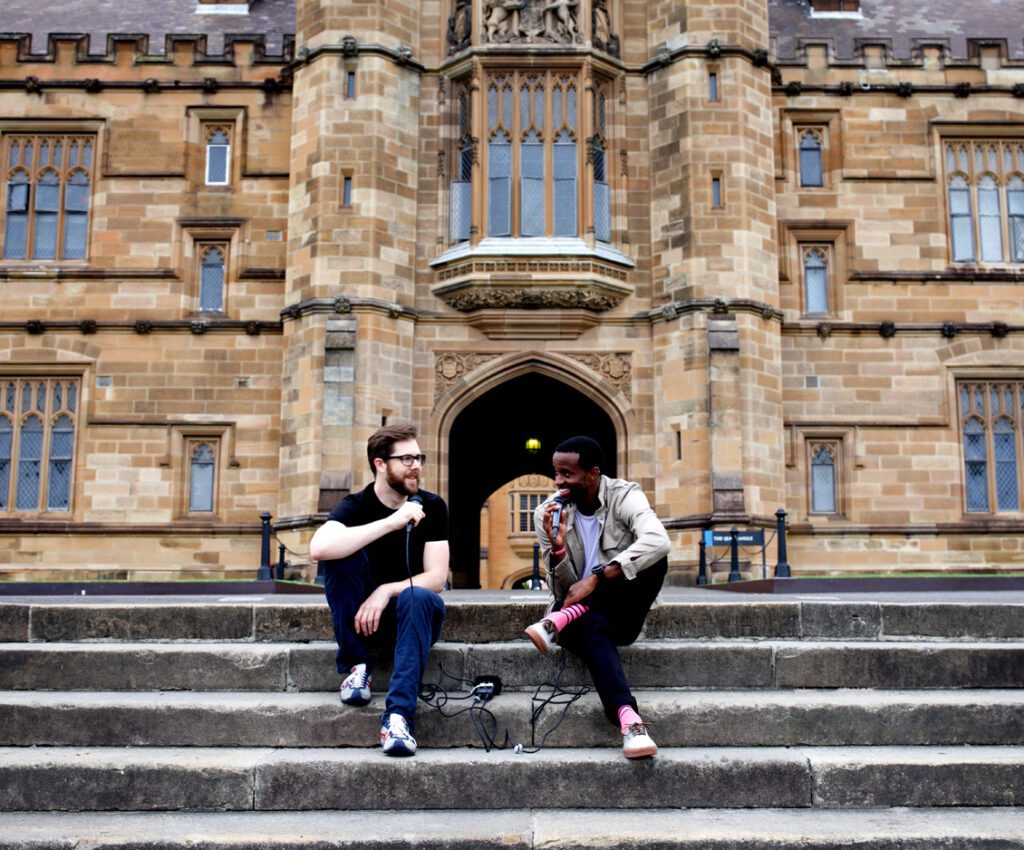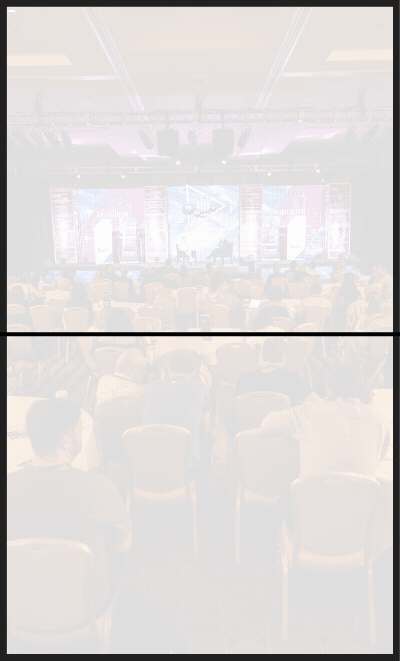How to use failure to build something better
What do time, plants, and podcasts have in common? Sometimes you have to end the life of your pride and joy — before you find out what it may grow to become.

Time is an interesting concept because it’s relative. Decades could pass before you know if a seed was meant to be a General Sherman sequoia tree or just an ordinary backyard bush.
When I stopped publishing episodes on my first podcast, it felt like a huge defeat. But between then and now, the perspective I gained was more than worth it. Looking back, major elements look like red flags: The series concept, my level of commitment, and how I identified my target audience. Why didn’t I see them at the time?
“When you look at someone through rose-colored glasses, all the red flags just look like flags.”
— Mehar Sethi, “BoJack Horseman”
Ending my podcast was tough to watch as it was happening. I had a passion to continue it, and the topic of the show was significant to me. Unfortunately, in the end, I didn't have the resources to grow and sustain it to where I thought it needed to be. It was time to uproot the whole garden.
In this article, I'll explain where I was when I pulled the plug, how I got there, what I've learned, and why it turned out to be a great decision.
I’ll walk you through four lessons:
- Overwatering Plants: The soiled marketing mess I ended up with
- How Not To Pot Seedlings: The roots underneath my podcast
- Harvesting Other Fruits From My Labour: The unexpected tools I yielded from what I thought was a major failure
- When To Pull The Plug On your Podcast: The questions you need to ask yourself to know when it's time to keep pushing or end it.
After reading this, you should gain more understanding around the concept of ‘podfade’ and what you can do to work with it. Once you understand this, you will know whether you should grow, re-plant, or toss your audio content to the compost. (Get ready for a few plant-based metaphors and puns. I apologize in advance if they’re a bit corn-y.)

Lesson 1: Overwatering Plants
The soiled marketing mess I ended up with
A short while ago, I ended my first podcast, Cool Black Dudes. It was a tough decision, but one that I knew I needed to do for a few reasons:
- I had a few close people casually ask me why I was still going so hard with it.
- This made me question my sanity at first, and then slowly, I came to the realization that I might be overwatering it.
- A lack of time/energy, lack of support and a lack of focus were the culprits.
- The lack of focus was my gross overestimation of who would want to listen to this podcast.
An example of a lack of time/energy was my inability to produce a few episodes in advance. Content 101 teaches how to stay consistent and avoid burnout by chasing your tail. I didn't prioritize this concept and paid for it.
Another example was if someone asked me “Who would you want to listen to this show?” I didn't have an answer. Well, I did, but it was convoluted and complicated. (More on that in the second lesson learned.)

Also, the name of the podcast, Cool Black Dudes, wasn't really screaming “inclusion” of other races or genders. I highly recommend naming your podcast what the actual content is about. The strategy backfired in the case of my podcast. It didn’t reflect the direction I wanted for the content.
I was attempting to be too broad with the actual podcast content while having a specific name. The name didn't give me favors with marketing efforts. I wanted everyone on the show, from white people to women to other minorities. This lack of focus can be confusing for your listeners. Especially new listeners, which is all you have in the early stages of your podcast.

Lesson 2: How Not To Pot Seedlings
What actually led to podfade, and how it felt
Like a true-crime podcast, let's go back in time to the beginning. It was 2014, and Cool Black Dudes was founded as a co-op community by my best friend, Kary Youman. The intention was to be an online place for like-minded black guys to post stuff. Our thinking was that we didn't do stereotypical or everyday things that the mainstream portrayed black people to do. Ironically enough, we realized that we were the “average” black person.
Our Facebook group would naturally touch on racially charged topics, as the Black Lives Matter movement was just starting to get momentum across the world. At its peak, there were about 200 people total in the group with 30-40 regularly active.

Around 2017 I felt the group needed an external image and brand so we could tell our stories to the world. The goal would be to normalize black guys doing cool stuff. A podcast was now born called CBD Radio. (In hindsight I should have just called it Cool Black Dudes. C'est la vie.)
To me, the podcast was more than just a cool hobby. I was emotionally and personally invested in the brand.
With my audio production and music background, creating a podcast around the external brand made the most sense. I could make it the podcast I always wanted to listen to — while positively affecting a young black kid somewhere in the world that needed representation. Everyone was excited about this, and I started scheduling interviews with the core members.
It’s a familiar story: For everyone except me, the excitement quickly wore off after a few months. Since I knew I wanted to do more with podcasting, I kept at it. To me, the podcast was more than just a cool hobby. I was emotionally and personally invested in the brand. I took the idea of representation with Cool Black Dudes to the next level, and this gave me the motivation when no one else really cared.
Unfortunately, a cool idea, motivation and personal investment doesn’t translate to listeners. As the listener numbers stayed relatively low — and the time to produce each episode was more than I budgeted for — I started losing steam. It was here that I finally came to the realization that the return on investment didn’t make sense.
At this time I did, however, publish an overly ambitious narrative episode around black male stereotypes, body positivity and gender equality. While this did get a lot of listeners, it took a lot of marketing energy and time. Again, the return on investment didn’t make sense. Unsustainability was the nail in the coffin. A few episodes later I ended it.
At the end of the life cycle of CBD Radio, I was able to identify one key takeaway: I actually didn't want to do this podcast. A lot of podcasters, including myself, are scared to admit to their listeners that it's not working out. But when you do accept it and tell the world, most people either don't care or end up happy for you because they want you to succeed. Quitting something after giving it a real effort is a good thing. Continuing something that isn't working month after month is not healthy.
After it ended, I had a few months of guilt and anxiety. I felt my identity die with it. That 15-year-old kid in the suburbs might never find a podcast that sounds like him. I might not be able to show the world that weird black people are actually the norm. This was until I realized that my other health and fitness podcast, Master of Some, might be a better vehicle for the message I wanted to spread.


Lesson 3: Harvesting Other Fruits From My Labour
What I learned to fuel my conceptual upgrade
Looking ahead gave me a renewed sense of purpose and intention. Because there was listener overlap between the old podcast and current show, I was able to understand my current audience much more clearly. It also forced me to become a much better marketer. I ended up doing a ton of research on growth hacking and feel comfortable knowing exactly who my audience and niche is. (For podcasting, I call this method “listener hacking.”) I highly recommend you do the same if you are struggling to find your audience and niche.
Because there was listener overlap between the old podcast and current show, I was able to understand my current audience much more clearly.
Master of Some is an endurance sports podcast. It tells stories to help people master a bit of their fitness-life, work-life and family-life. We hope to show people how to perform better as they age.
What’s the connection between the two podcasts? I’m building on my previous objective that I had with Cool Black Dudes, but the new focus has a fitness twist: Underrepresented endurance athletes. Specifically, black runners, cyclists, and triathletes.
The above definition of the concept took me years to develop. More importantly, I’m still revising it regularly. Those words give me a filter to run what content I create, what guests I have on, and all other decisions through. This hopefully leads to more value for listeners and positive engagement with my brand — a virtuous cycle.
Before, I was trying to break stereotypes, but the idea was too vague. Now, I’m sharing stories that directly break those stereotypes, inspiring my listeners with focused representation.
This could not have happened if I didn't fail and kill my first podcast. I'm now able to create representation in a way that I'm more confident about (without trying to be the voice of all black dudes in the world.) Before, I was trying to break stereotypes, but the idea was too vague. Now, I’m sharing stories that directly break those stereotypes, inspiring my listeners with focused representation.

Lesson 4: How to Grow or Kill Your Garden
Questions to ask yourself if you are experiencing podfade
That's my story, and I hope you've taken a few things from it. Everyone has their own place with different goals and unique circumstances, but we can all build on our ‘failed’ ideas.
Here are a few (a lot of) general marketing questions to ask yourself if you’re feeling unmotivated or unfocused.
- Why did I start this? (While this can change, it's helpful to return to your roots.)
- What do I want to do now? (Not before. Not later. Right now.)
- Who do I want to help?
- How am I best equipped to serve them?
- Where are they?
- What are the resources required to reach those listeners?
- Do I have these resources?
- Where do I see myself in 6 months if I continue? One year? Three years?
- Where do I see myself in 6 months if I stop? One year? Three years?
- What's the best step I can take to make it easier to reach my goals?

Don't forget that you were once committed and creative enough to start your first podcast. Remember the grind through the development, ideation, and setup phases? You still have those same qualities, and now you’ve gained something else: wisdom. Wisdom is just time multiplied by experience. Experience comes directly from failures.
Remember the grind through the development, ideation, and setup phases? You still have those same qualities, and now you’ve gained something else: wisdom.
Remember that time-relativity thing I mentioned at the beginning? Well, starting something new can be a lot of time and work, but it's worth it, and it could even be fun. For me, going to the gardening store in the spring is awesome! Why does it feel so good?
I get some fresh soil, new pots, and seedlings. I don’t know exactly how my garden will turn out, but the key is that each new season builds on the last. The soil is more fertile because of what came before, and what died in the winter to create new life. No matter what happens, starting over feels refreshing and inspiring.
The band Semisonic sums up the idea of time with this classic line: “Every new beginning comes from some other beginning’s end.”



Join the Movement